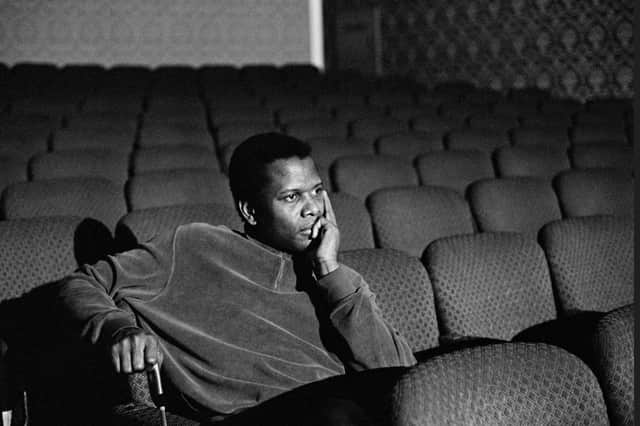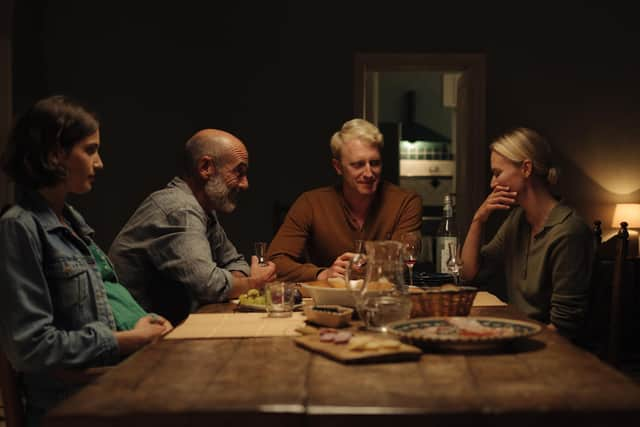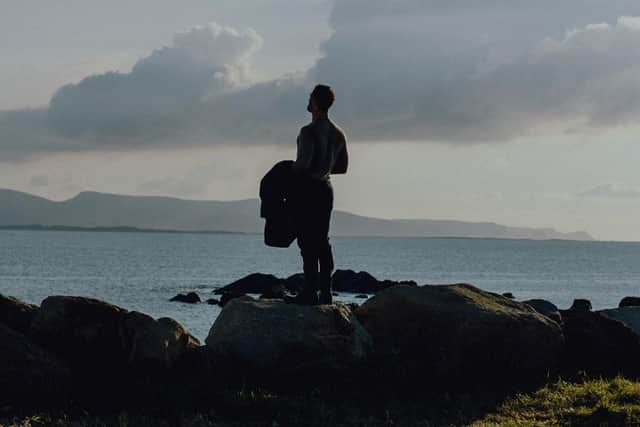Film reviews: Sidney | Silent Land | It Is In Us All


Sidney (12A) ****
Silent Land (15) ****
It Is In Us All (15) **
The late Sidney Poitier’s life and career is explored in appropriately classy fashion in Sidney, a glossy documentary from director Reginald Hudlin and producer Oprah Winfrey that features a roster of A-listers, family members and cultural critics paying tribute to his groundbreaking career. Filmed shortly before his death in January of this year, it also features new interviews with the man himself and it’s fascinating to hear him reflect on the extent to which his Bahamian upbringing imbued him with the fortitude to become not just the first Black leading man in Hollywood history, but one of the film industry’s top box-office draws at a time when the US was being torn apart by racial inequality.
None of which is as hagiographic as it sounds. Yes, Lulu can’t resist belting out an a cappella version of her theme song from To Sir, with Love before gushing about how privileged she was to be connected to Poitier’s proto-#BlackLivesMatter message. But Hudlin cannily juxtaposes such reminiscences with deeper analysis to provide a more nuanced interpretation of the complex role Poitier played in dignifying Black people on screen – something that simultaneously led to him facing criticism for kowtowing to white liberal fantasies of Blackness in movies such as The Defiant Ones and Lilies of the Field, for which he won the best actor Oscar.
Advertisement
Hide AdIt’s a theme to which the film returns again and again, mainly to reiterate the inherently radical nature of Poitier’s leading-by-example approach to his life and career. As Denzel Washington puts it, “He had big shoulders… but he had to carry a lot of weight” and the film reminds us of the significance of refusing to sign loyalty oaths to get work or to turn down roles that gave him no on-screen agency at a time in his career when he could little afford to do so. When he subsequently became a giant movie star almost every gesture he made was examined and analysed for its social significance, but the film is good too at showing how his subsequent move behind the camera opened up opportunities for Black talent on screen and off.
These films – mostly comedies – may be less celebrated than his acting roles, but they broke down barriers of their own (1982’s Richard Pryor/Gene Wilder comedy Stir Crazy, for instance, became the first film by a director of colour to gross more than a 100 million dollars at the US box-office). Elsewhere Hudlin gets good stuff from the likes of Spike Lee, Halle Berry and Oprah Winfrey and some great archival material allows him to sketch out the importance of Poitier’s life-long friendship (and playful rivalry) with Harry Belafonte. An absorbing and gratifying watch.


Silent Land, the debut fiction feature from Polish writer/director Aga Woszczynska, has a lot on its mind. Part portrait of a relationship rotting from the inside out, part abstract exploration of the refugee crisis, it’s a discomfiting film that uses its luxurious Italian holiday setting to queasy effect as its affluent protagonists, Adam (Dobromir Dymecki) and Anna (Agnieszka Zulewska), gradually reckon with a freak accident in the house they’ve rented.
Observing them the way an entomologist might ants under a microscope, Woszczynska keeps her distance from the characters. Shooting mostly in medium shots, she forgoes close-ups, preferring instead the occasional push-in or tracking shot to emphasise to their alienation within a scene, or letting the camera drift away from them altogether to show how disconnected they are from the wider world.
What plot there is revolves around an illegal immigrant worker who shows up at the house to fix the swimming pool they’ve already complained to the owner about for not being ready in time for their vacation. This isn’t really a plot driven movie, though; it’s a mood piece and the mood it creates is extreme unease, particularly as Adam and Anna’s complicity in an unfolding tragedy becomes more apparent at the very moment their culpability is excused by police and local business owners worried about the negative impact of bad publicity on the tourist trade. Stripping the film of any melodrama or narrative fat, Woszczynska lets her images do the talking, which also helps the film transcend the familiarity of its rich-people-abroad culture-clashing premise.
The same can’t be said for It Is In Us All, a stylistically mannered, psychologically thin study of a nihilistic Irish teenager (Rhys Mannion) who bonds with a wealthy London businessman (Cosmo Jarvis) after a car crash on a country road leaves the latter physically banged up and one of the joyriding teenagers in the other car dead from his injuries. Written and directed by British actor Antonia Campbell-Hughes, it’s a pretty unconvincing study of masculinity, built as it is around a baffling performance from Jarvis as a messed-up posh guy with a raft of family issues, and a clearly psychopathic teen whose accountability in the accident is never questioned.


Advertisement
Hide AdAs this pair strike up an intense quasi-sexual attraction, the film bottles out of exploring it in any meaningful way (the JG Ballard/David Cronenberg overtures of the plot come to nothing). Instead it tries to mine psychological tension from exploring whether or not Jarvis’s character subconsciously wanted the crash to happen – a mystery rather undermined by the film’s on-the-nose title.
Sidney is in cinemas and streaming on AppleTV+ from 23 September; Silent Land and It Is In Us All are in cinemas from 23 September